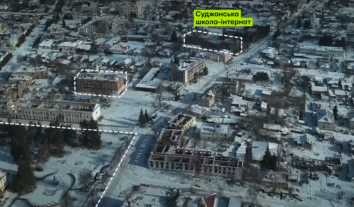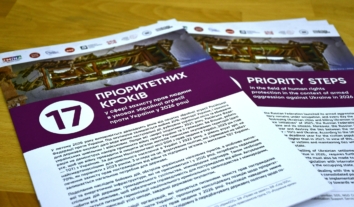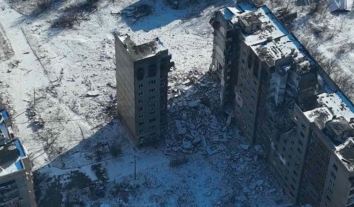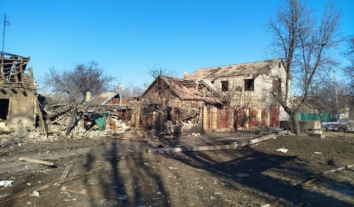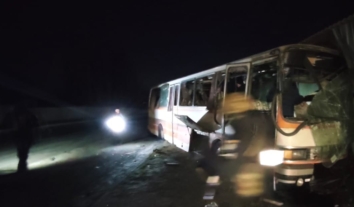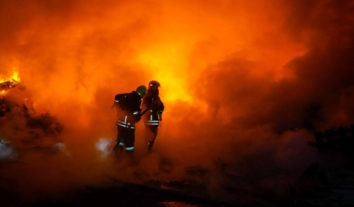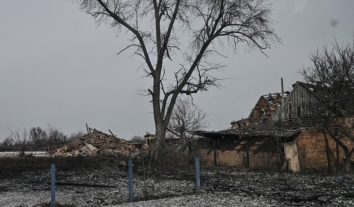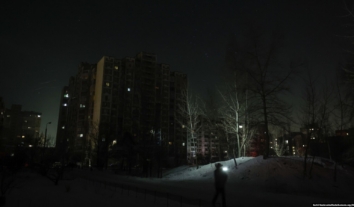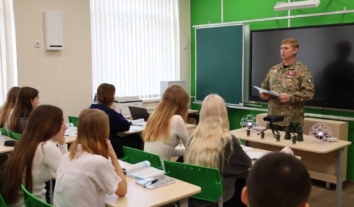Human Rights Advocates: Crimea is a Dissent-Free Zone
Normal
0
false
false
false
RU
X-NONE
X-NONE
/* Style Definitions */
table.MsoNormalTable
{mso-style-name:”Обычная таблица”;
mso-tstyle-rowband-size:0;
mso-tstyle-colband-size:0;
mso-style-noshow:yes;
mso-style-priority:99;
mso-style-qformat:yes;
mso-style-parent:””;
mso-padding-alt:0cm 5.4pt 0cm 5.4pt;
mso-para-margin-top:0cm;
mso-para-margin-right:0cm;
mso-para-margin-bottom:10.0pt;
mso-para-margin-left:0cm;
line-height:115%;
mso-pagination:widow-orphan;
font-size:11.0pt;
font-family:”Calibri”,”sans-serif”;
mso-ascii-font-family:Calibri;
mso-ascii-theme-font:minor-latin;
mso-fareast-font-family:”Times New Roman”;
mso-fareast-theme-font:minor-fareast;
mso-hansi-font-family:Calibri;
mso-hansi-theme-font:minor-latin;}
Crimean authorities are putting pressure on the media and independent organizations and pursuing Crimean Tatars and Ukrainian activists. Kidnappings are not investigated, which adds to the atmosphere of fear.
This was stated by representatives of human rights organizations at the Docudays UA festival in Crimea, among them were Amnesty International Ukraine, the Crimean Human Rights Field Mission (CFM) and the Human Rights Information Center.
“A year since the occupation, Crimean authorities have mastered the whole repressive apparatus that is in place under Russia and are using it to stifle dissent on the peninsula. Dissenters, among other things, are going to be arrested, prosecuted and forced out of Crimea,” said Krasimir Yankov, Amnesty International’s researcher on Ukraine.
Crimean Tatars who have declared their pro-Ukrainian position, are incapable of holding almost any public or cultural events, the Mejlis is not recognized by the authorities, and the Crimean Tatar media is under threat of closure. Cases of kidnapped members of the Crimean Tatar community are not investigated, which further increases the atmosphere of fear.
Chernomorska, the largest Television and Radio Company, was turned off the air on March 3rd, 2014. On March 9th all Ukrainian TV channels stopped broadcasting in Crimea. On June 29th, cable broadcasting was disabled as well.
Crimean Tatar and Ukrainian activists are persecuted using Russian legislation on anti-extremism and so-called separatism, as was the case with Ahtem Chiygoz, Oleksandr Kostenko, and other activists who commemorated the birthday of Ukrainian poet and artist Taras Shevchenko.
“As a whole, serious and systemic problems in the field of freedom of expression have been witnessed in Crimea. Among them are the implementation of the law on countering extremist activity, criminal liability for ‘inciting separatism,’ the reduction of the number of alternative sources of information, and the persecution of journalists by law enforcement bodies and ‘Crimean Self-Defense’,” said Tetiana Pechonchyk, head of the Human Rights Information Center.
Human rights advocates also noted that the Crimean government is putting pressure on independent organizations. The right to a fair trial is absent on the peninsula and “Crimean Self-Defense” has not yet been held accountable for their crimes. At least seven people (six of whom are Crimean Tatars) have been abducted since the beginning of the annexation and their fate is unknown. One of the men was found dead with signs of torture.
“Systemic limitations on freedom of religion almost led to a situation where only the Orthodox Church of the Moscow Patriarchate is free to exist and operate in Crimea. It should also be noted that citizens of Ukraine who have not received a Russian passport face discriminatory practices, particularly in the field of social security,” said Olga Skrypnik, Deputy Head of the Crimean Human Rights Field Mission (CFM).






